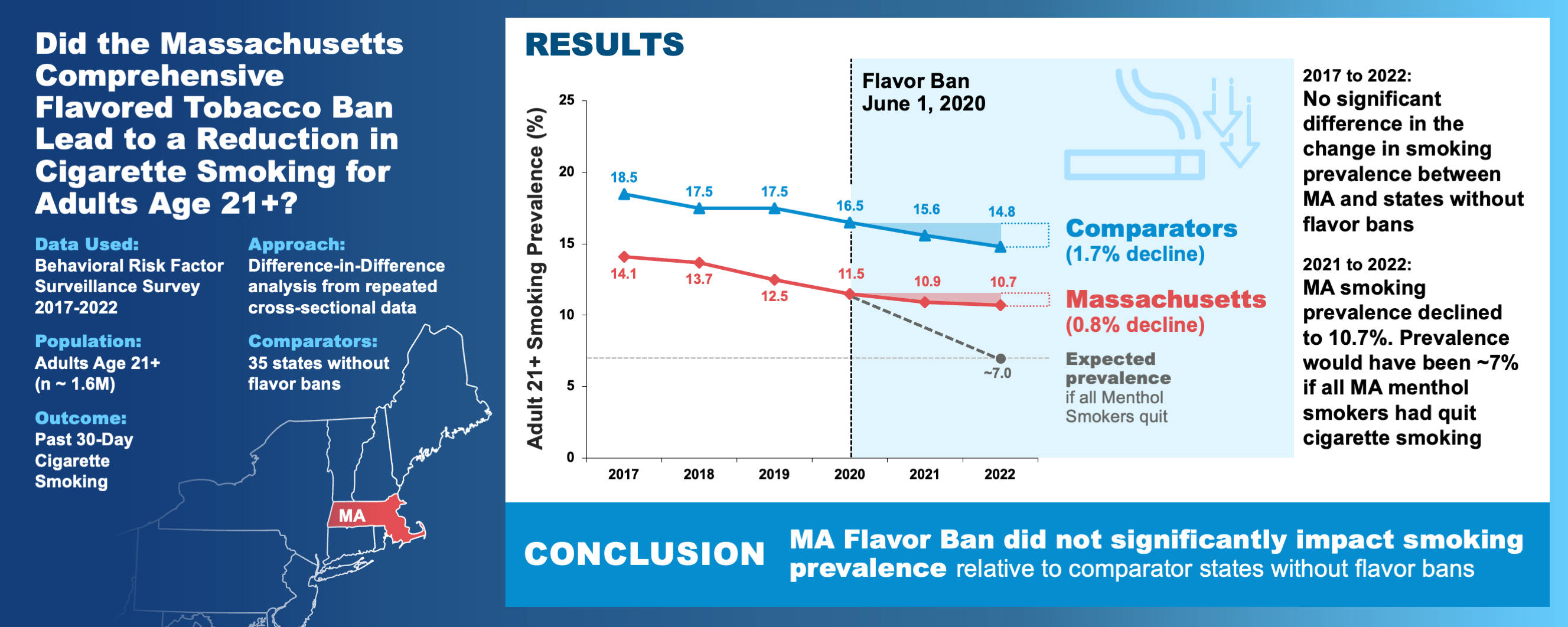Massachusetts Flavor Ban Did Not Significantly Impact Smoking Prevalence

In June 2020, Massachusetts implemented a statewide sales restriction on flavored tobacco products, including menthol cigarettes. To assess the impact of the ban, Altria scientists analyzed Behavioral Risk Factor Surveillance System (BRFSS) data from 2017 to 2022 to examine behavioral effects following the ban on menthol cigarettes.
Using a difference-in-differences (DiD) model, our team compared smoking prevalence trends in Massachusetts before and after the restriction with trends in 35 states without similar policies.
Key findings:
- Smoking prevalence fell in both Massachusetts (14.1% in 2017 to 10.7% in 2022) and the comparator states (18.5% to 14.8%), but the DiD analysis detected no statistically significant difference attributable to the ban. Sensitivity analyses—accounting for sociodemographics, year-fixed effects, and excluding bordering states—consistently reinforced this finding.
- Massachusetts’ ban on flavored tobacco products did not significantly change smoking behavior among adults aged 21 and older compared with trends in other states. While smoking rates in the state continued to decline, the pace of that decline slowed after the restriction—the opposite of what would be expected if the policy had strongly promoted cessation.



